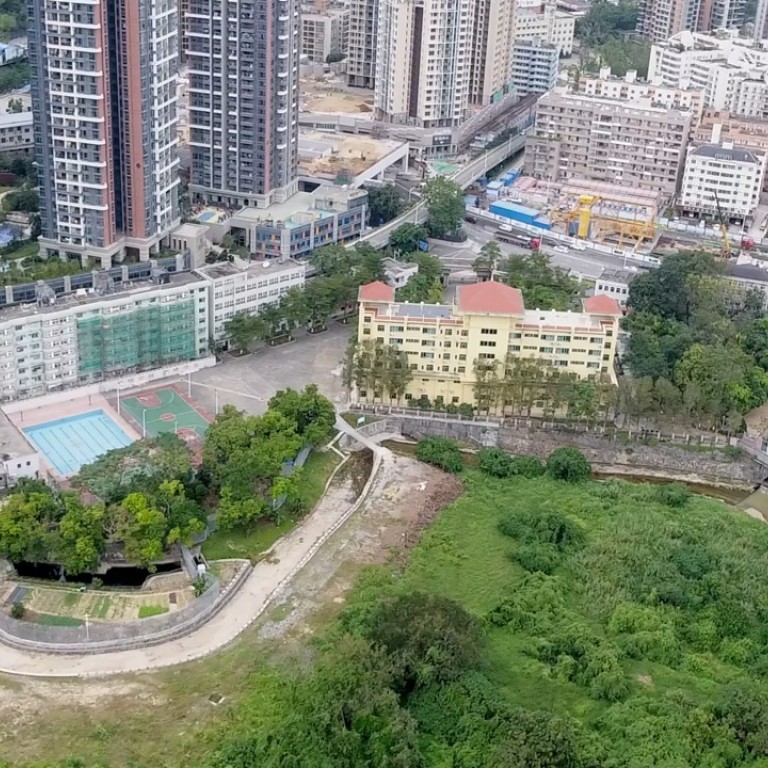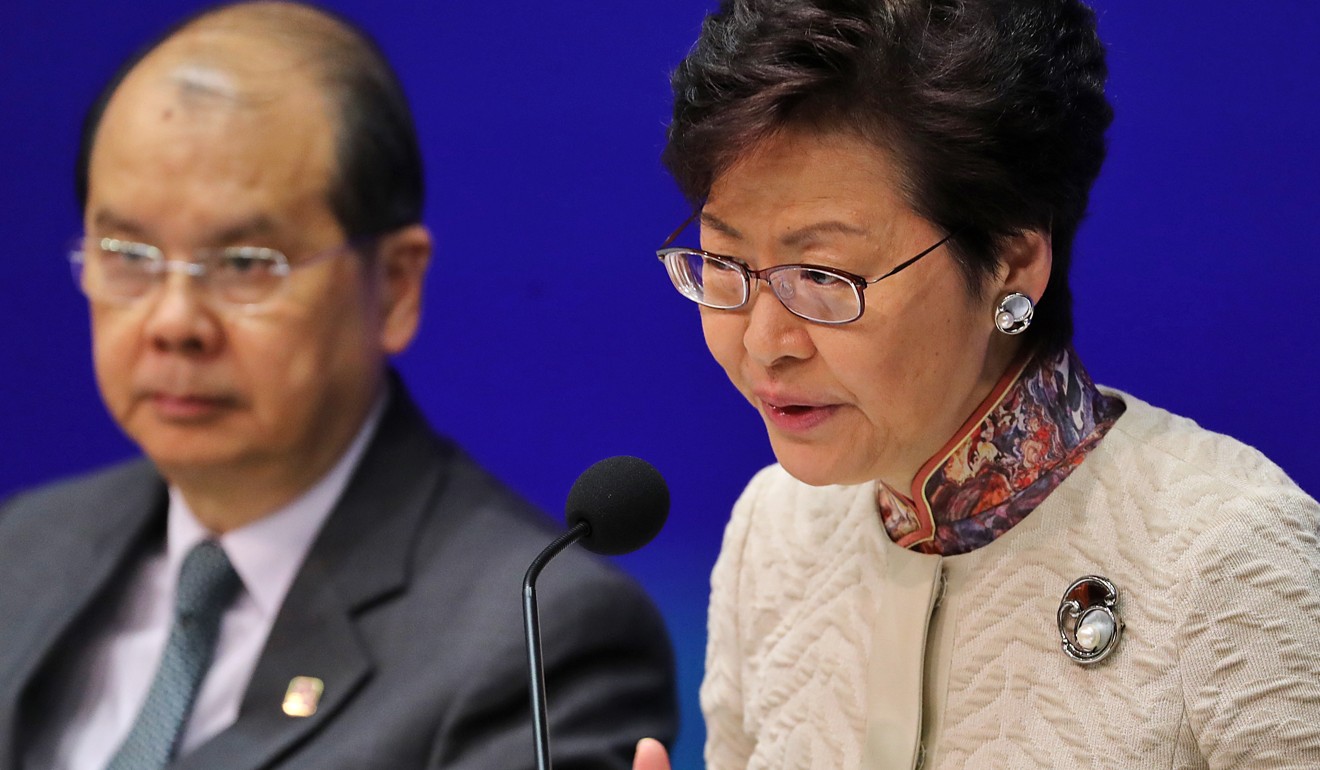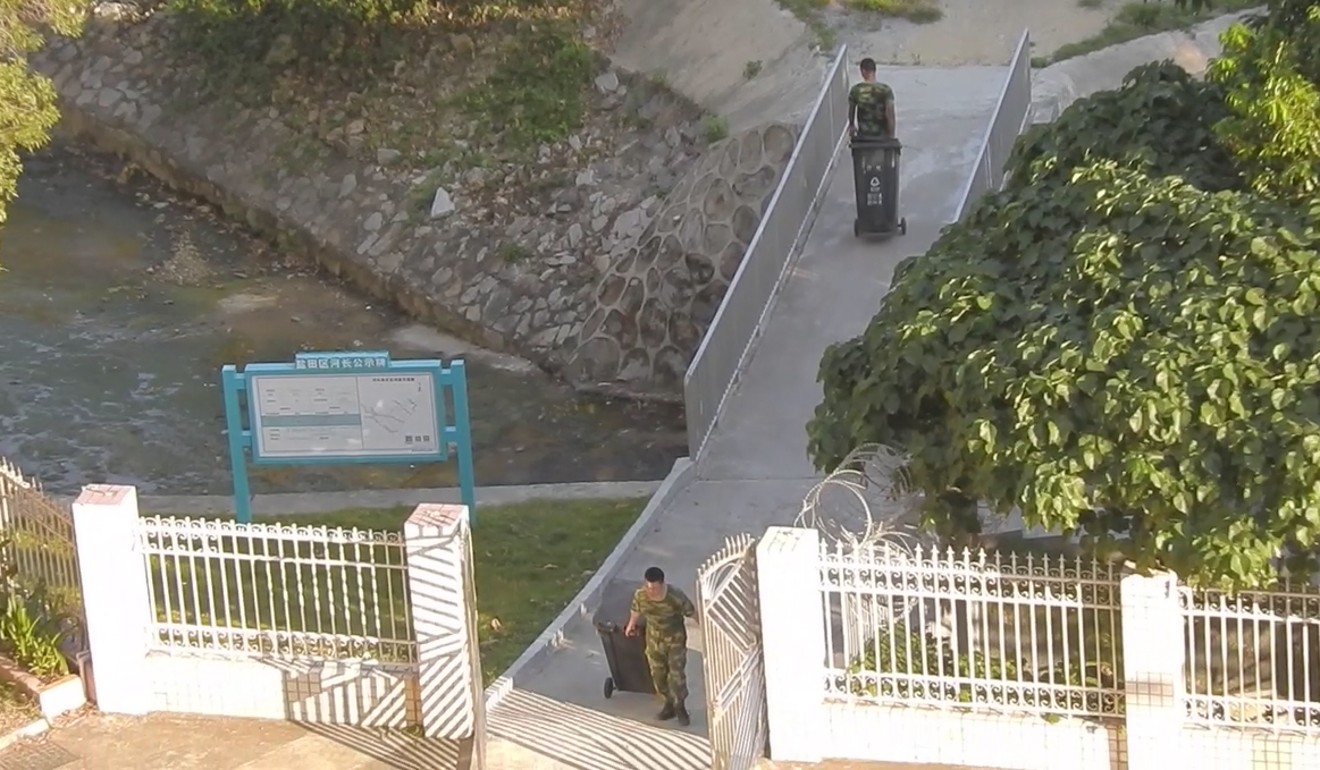
Buy farmland at centre of border row, Hong Kong government urged
- Government calls interdepartmental meeting on the revelations that plots have been occupied by mainland Chinese officers
- Legislator decries ‘blatant violation of the Basic Law’
That came as the government got various departments together to clear up the situation, and an opposition legislator said it was “a blatant violation” of the city’s semi-autonomy.
An investigation published on Sunday by FactWire news agency revealed that Shenzhen border defence officers had turned land owned by Hongkongers into a 21,000 sq ft garden without the owners’ permission.
Speaking in Beijing on Monday, Chief Executive Carrie Lam Cheng Yuet-ngor said the public would get an explanation once relevant government departments had reviewed the situation.
Chief Secretary Matthew Cheung Kin-chung chaired a meeting involving the Development Bureau, the Security Bureau, the Constitutional and Mainland Affairs Bureau and other departments to discuss the matter.
A government spokesman said on Monday night police and land officials inspected the site during the day and were reviewing land boundary records, aerial photos and works records.

The land in question is next to the river in Sha Tau Kok, in the New Territories, and borders the Yantian district of Shenzhen on the mainland side, where there is a garrison of the Guangdong Border Defence Corps.
The area is owned by different landlords, including at least two Hong Kong residents and two land trusts.
After the changes came to light, rural leaders told the Post the land had been inaccessible for decades, having been fenced off near the border by local authorities in the 1990s.
Villagers were allowed to go through the fence under police supervision only for grave sweeping, they said.
North district councillor Wan Wo-fai, whose constituency includes Sha Tau Kok, said the government could buy the trapped land from landowners or remove the fences on the private land to avoid further disputes.
He noted similar pockets of trapped land existed further along the border and estimated dozens of landowners could be affected.
According to the government’s policy on taking privately owned farmland by force, landowners in Sha Tau Kok are entitled to compensation of HK$337.2 (US$42) per sq ft.
Lee Koon-hung, who chairs the Sha Tau Kok Rural Committee, said the Hong Kong government bought the land from some villagers before erecting the fence.
“But the government only got parts of the land, and the rest is now on the other side of the fence,” Lee said.
Lin Ma Hang village chief Yip Wah-ching said some of the trapped land belonged to the family of his predecessor, Ip Chau-ping.
Yip agreed that the Hong Kong government should consider buying the land from the Ips.

Civic Party leader Alvin Yeung Ngok-kiu said the incident had revealed other serious issues.
The investigation also showed a bridge had been built over the Sha Tau Kok River, with mainland officers seen crossing it to dump rubbish on the Hong Kong side.
Land records showed the Hong Kong-Shenzhen border running through the middle of the bridge, and the pictures of the site did not show any immigration checkpoint.

“This is a blatant violation of the Basic Law and the ‘one country, two systems’ principle,” Yeung said. One country, two systems is the arrangement under which the city, while governed by Beijing, is promised a high degree of autonomy.
By crossing the bridge and entering Hong Kong, Yeung said, the mainland officers had ignored the city’s immigration system.
He said he planned to seek permission from Legislative Council president Andrew Leung Kwan-yuen to raise an urgent question in a meeting on Wednesday.

